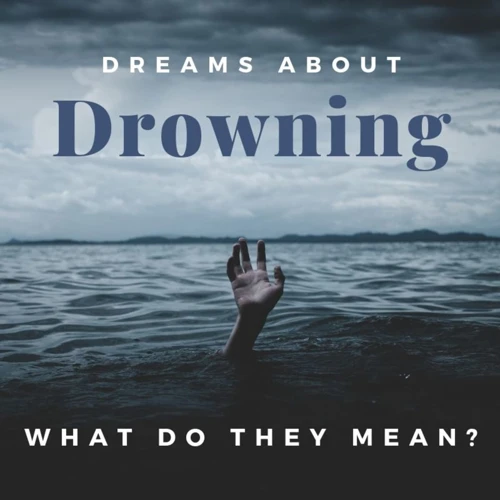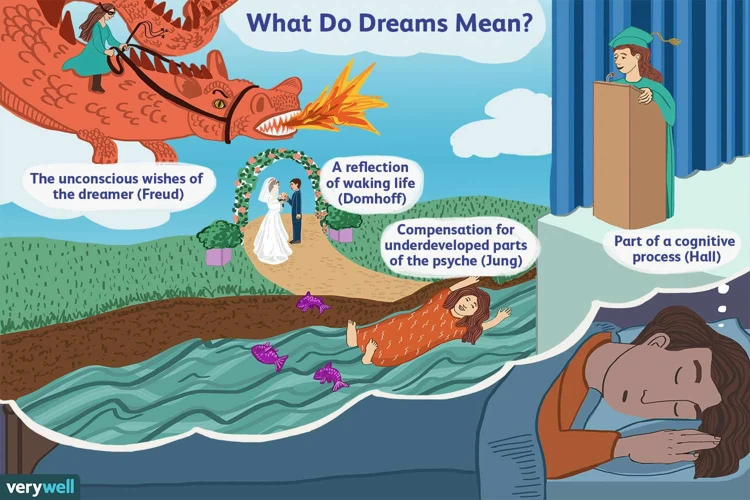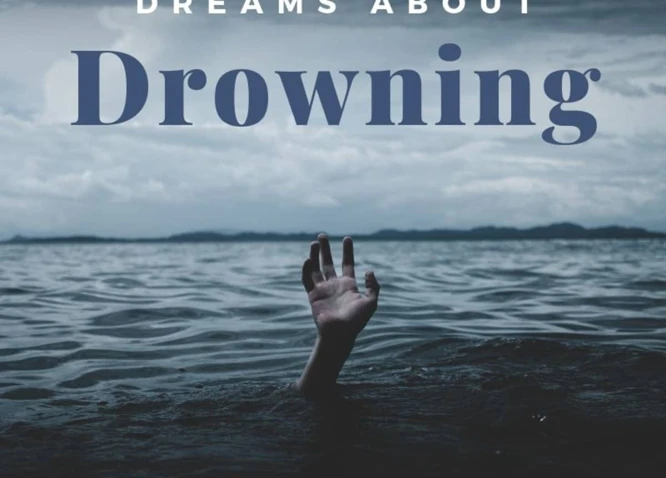Have you ever woken up in a cold sweat, gasping for air after a terrifying dream of drowning? Dreams of drowning can leave us feeling anxious, confused, and overwhelmed. What do these dreams mean? Are they purely random, or do they hold deeper symbolic significance? In this article, we delve into the mysterious world of underwater nightmares, exploring the meaning and symbolism behind them. By understanding the various interpretations and psychological implications of these dreams, we can gain valuable insights into our own fears, emotions, and subconscious desires. So, take a deep breath, let’s dive into the enigmatic depths of dreams of drowning and unravel their secrets.
Understanding Dreams of Drowning

Dreams have long fascinated humans, and their meanings have been the subject of much speculation and interpretation. When it comes to dreams of drowning, there are several key aspects to consider in order to gain a deeper understanding. Water is a powerful symbol in dreams, often representing emotions, the subconscious, and the depths of our inner selves. Drowning in this context may symbolize feeling overwhelmed, suffocated, or controlled by intense emotions or difficult life circumstances. Additionally, dreams of drowning can be a manifestation of perceived threats or a reflection of deep-seated anxieties. Exploring the symbolic nature of dreams and the specific elements within them can help shed light on their deeper meanings. So, let’s dive deeper into the waters of understanding dreams of drowning.
The Symbolic Nature of Dreams
Dreams are not always literal representations of reality; instead, they often communicate through symbols and metaphors. The symbolic nature of dreams allows our subconscious mind to express complex emotions, desires, and fears in a way that transcends everyday logic. When it comes to dreams of drowning, the water itself holds significant symbolic value. Water is a universal symbol of emotions and the unconscious mind, representing the depths of our psyche. Drowning in a dream may symbolize a sense of being overwhelmed by intense emotions or situations in waking life. It can serve as a metaphor for feeling suffocated or unable to cope with these emotional challenges. Through understanding the symbolic language of dreams, we can gain insights into our innermost feelings and experiences. To explore further, let’s navigate the ocean of dream symbolism together.
The Significance of Water in Dreams
Water holds immense symbolic significance in the realm of dreams. It often represents our emotions, the subconscious mind, and the depths of our inner selves. Dreams of water overflowing can indicate overwhelming emotions or a sense of being unable to control or contain them. Similarly, water can symbolize purification, renewal, and transformation. The calmness or turbulence of the water in the dream may reflect the state of our emotions or the challenges we are facing in waking life. It’s important to consider the specific context and associations we have with water in order to interpret its meaning in our dreams. Whether it’s a gentle stream, a turbulent ocean, or even a dream of a car falling into water, paying attention to the role that water plays in our dreams can provide valuable insights into our emotional landscape and inner psyche.
Drowning as a Perceived Threat
Dreams of drowning often arise as a result of perceived threats in our waking lives. The sensation of drowning can symbolize a sense of being overwhelmed or suffocated by various factors. These threats may take different forms for each individual, ranging from personal relationships, professional challenges, or even internal struggles with self-doubt and insecurity. The fear of being engulfed by these threats can manifest in dreams as a drowning scenario. For example, if you frequently experience stress and anxiety related to your work, you may have a dream of drowning in a sea of paperwork or deadlines. These dreams serve as a subconscious warning signal, urging us to confront and address the perceived threats before they consume us. By recognizing and actively tackling these threats head-on, we can regain a sense of control and alleviate the anxiety that may be spurring these drowning dreams. Driving into water dreams can also represent a perceived threat and share similar symbolism with dreams of drowning, as they both depict a sense of danger and vulnerability.
Emotional Turmoil and Overwhelming Feelings
Dreams of drowning often evoke intense emotions and a sense of overwhelming turmoil. These dreams can be a reflection of deep-seated fears, anxieties, or unresolved emotional issues. Emotional turmoil in dreams of drowning can symbolize the struggles and challenges we face in our waking lives. Feelings of being overwhelmed, helpless, or trapped may manifest in the dream as the sensation of drowning. Such dreams can serve as a powerful reminder to pay attention to our emotional well-being and address any internal conflicts or unresolved issues. It is important to explore the underlying emotions associated with these dreams and seek ways to alleviate the emotional burden they may represent.
Interpreting Dreams of Drowning

When it comes to interpreting dreams of drowning, there are various approaches to consider. Personal context and experiences play a significant role in understanding the symbolism of these dreams. Reflecting on your own fears, emotions, and past experiences with water can provide valuable insights into the meaning behind your dreams. Additionally, exploring universal interpretations can offer a broader perspective on the symbolism of drowning dreams. Archetypal representations of water and drowning in different cultures and belief systems can shed light on the collective associations and meanings. Specific dream scenarios and their associated symbolism can provide further clues. Dreaming of being pulled underwater by a strong current may signify feeling overwhelmed by external forces, while dreaming of saving someone from drowning could represent a desire to rescue others from difficult situations. By considering personal and universal interpretations along with specific dream scenarios, we can gain a deeper understanding of dreams of drowning and their significance.
Personal Context and Experiences
Understanding dreams of drowning requires a personalized approach, considering the unique experiences and context of each individual. Our dreams are influenced by our personal history, traumas, relationships, and daily experiences. It is essential to delve into our own lives and reflect on the emotions and events that may be triggering these dreams. For example, someone who had a near-drowning experience as a child may have recurring dreams of drowning as a way for their subconscious mind to process and cope with the trauma. Similarly, individuals who are feeling overwhelmed or suffocated in their waking life may frequently have dreams of drowning as a reflection of their emotional state. By analyzing our own personal context and experiences, we can begin to unravel the intricate meaning behind our dreams and gain valuable insights into our inner selves.
Exploring Universal Interpretations
When it comes to interpreting dreams of drowning, it is important to consider both personal context and universal interpretations. Exploring universal interpretations can provide valuable insights into the common symbols and meanings associated with these dreams. One common interpretation is that dreams of drowning may represent a fear of being overwhelmed by emotions or situations in waking life. They may also reflect a need to confront and process deep-seated fears or unresolved issues. Another universal interpretation is that dreams of drowning can signify the need for personal transformation and change. Just as water can cleanse and purify, dreams of drowning may indicate a desire for a fresh start or a release from past burdens. It is important to remember that individual interpretations may vary, and personal context should always be taken into account when exploring the meaning of these dreams.
Common Dream Scenarios and Their Meanings
Dreams of drowning can manifest in various scenarios, each carrying its own unique symbolism and meaning. Here are some common dream scenarios and their interpretations:
1. Natural Disasters: In these dreams, you may find yourself engulfed by a tsunami, flood, or a sudden overflow of water. Such dreams often represent overwhelming emotions or a sense of being unable to control the circumstances in your life.
2. Struggling to Breathe: Dreams where you are desperately gasping for air underwater or struggling to breathe can indicate feelings of suffocation or being stifled in your waking life. It may be a reflection of your need for freedom and the desire to break free from constraints.
3. Rescue Attempts: Dreams in which you are being saved or rescued from drowning can symbolize the need for support or assistance in overcoming a challenging situation. They may reflect a desire for help or a reminder that reaching out for support can be beneficial during difficult times.
4. Drowning in Slow Motion: When dreams of drowning occur in slow motion, it can represent a feeling of helplessness or being trapped in a slow-moving, stagnant situation. It may be an indication that you need to take action and make changes to move forward in your life.
Remember, the interpretation of dreams is highly subjective. Your personal experiences and emotions play a significant role in understanding the specific meanings behind these common dream scenarios. Reflecting on the emotions and events in your life, both past and present, can provide deeper insights into the symbolism of these dreams.
Psychological and Emotional Analysis

When analyzing dreams of drowning from a psychological and emotional perspective, there are several key factors to consider. One common interpretation is that these dreams reflect feelings of anxiety and stress in waking life. The experience of drowning can represent a sense of being overwhelmed by responsibilities, challenges, or emotional burdens. Repressed emotions may also play a role in these dreams, as drowning can symbolize a struggle to suppress or control intense feelings. Dreams of drowning can serve as a metaphor for facing transformation and change. Just as water symbolizes the subconscious, drowning can signify the need to confront and navigate through deep-seated emotions or life transitions. By delving into this psychological and emotional analysis, we can gain a deeper understanding of the underlying meanings and messages behind dreams of drowning.
Anxiety and Stress in Dreams of Drowning
When examining dreams of drowning, one recurring theme that often emerges is the presence of anxiety and stress. Anxiety is a common emotion experienced by many individuals, and it can manifest in various ways within dreams. In the context of drowning dreams, anxiety can symbolize a sense of being overwhelmed or out of control in waking life. The feeling of being unable to breathe or escape can mirror the feelings of stress and pressure that individuals may experience in their daily lives. These dreams may serve as a reflection of the need to address and confront these anxieties head-on. Understanding the role of anxiety and stress within dreams of drowning can provide valuable insight into our emotional well-being and the need to prioritize self-care and stress management techniques.
Repression and Suppressed Emotions
Dreams of drowning can also be a reflection of repressed and suppressed emotions. When we suppress our feelings or ignore certain aspects of ourselves, they can manifest in our dreams as vivid and unsettling experiences. Drowning in a dream may indicate that these suppressed emotions are resurfacing and demanding our attention. It is important to recognize and acknowledge these emotions in order to address them effectively. By exploring the underlying causes of repression and allowing ourselves to express and process our emotions, we can find healing and resolution. Seeking the support of a therapist or counselor can be beneficial in navigating these complex emotional landscapes. Remember, facing and addressing suppressed emotions can lead to personal growth and a sense of peace.
Facing Transformation and Change
Facing Transformation and Change: Dreams of drowning can also be associated with the theme of transformation and change. Just as water is a symbol of emotions, it can also represent the ebb and flow of life’s transitions. Drowning in a dream may indicate that you are navigating a period of significant change or going through a transformational process. It could suggest that you are struggling to let go of the past and embrace the unknown. Alternatively, it may represent a fear of change and the overwhelming emotions that come with it. This dream theme encourages introspection and self-reflection, urging you to explore what aspects of your life or personality may need to be released or transformed. By confronting these fears head-on, you can emerge stronger, wiser, and more adaptable to the ever-changing currents of life.
Overcoming Drowning Dreams
Overcoming drowning dreams can be a challenging process, but it is possible to find relief and peace. Self-reflection and emotional healing play a crucial role in this journey. Take the time to acknowledge and explore the emotions and fears that these dreams bring to the surface. This may involve journaling, talking to a trusted friend or therapist, or engaging in meditation and mindfulness practices. Additionally, seeking professional help can provide valuable guidance and support. A therapist specializing in dream analysis or trauma therapy can assist in uncovering the underlying causes of these dreams and developing coping strategies. Another approach is to employ techniques for controlling and changing dreams. Lucid dreaming, for example, allows individuals to become aware that they are dreaming and exert some degree of control over the dream content. This can be achieved through various techniques, such as reality checks, visualization exercises, and dream journaling. By actively engaging with and addressing these dreams, it becomes possible to overcome the sense of drowning and embrace a sense of empowerment and resilience.
Self-Reflection and Emotional Healing
Self-reflection and emotional healing are crucial steps towards overcoming the distressing experience of drowning dreams. Taking the time to analyze and understand the emotions and fears that these dreams evoke can provide valuable insights for personal growth. Reflecting on the events, symbols, and sensations experienced in the dream can unveil underlying issues that need attention. Engaging in practices such as journaling, meditation, or therapy can aid in this self-exploration process. It is important to create a safe space to express these emotions and seek healing.
Additionally, finding healthy coping mechanisms, such as engaging in relaxation techniques or pursuing creative outlets, can help manage stress and reduce anxiety. Building resilience and developing self-care routines can contribute to overall emotional well-being. Remember, dreams offer an opportunity for self-discovery and by embracing this process of self-reflection and emotional healing, you can emerge stronger and more resilient.
Seeking Professional Help
Seeking professional help can be beneficial for those who are experiencing persistent and distressing dreams of drowning. Consulting with a therapist or dream analyst can provide guidance and support in navigating the underlying emotions and meanings behind these dreams. A trained professional can assist in uncovering potential unresolved traumas, fears, or anxieties that may be contributing to the recurring nightmares. Through therapy sessions, techniques such as dream analysis, cognitive-behavioral therapy, or trauma-focused therapy can be utilized to help individuals process and heal from the emotional turmoil associated with these dreams. It is important to recognize that seeking help is a sign of strength and can lead to personal growth and emotional well-being. Remember, you don’t have to face these dreams alone – reach out to a professional for support and guidance on your journey to overcoming drowning dreams.
Techniques for Controlling and Changing Dreams
Controlling and changing dreams may seem like an elusive task, but there are techniques that can help you gain some degree of control over your dream experiences. Mindfulness and reality testing are essential practices for lucid dreaming, where you become aware that you are dreaming and can actively participate in the dream’s direction. By regularly questioning and assessing your reality throughout the day, you increase the chances of doing the same within your dreams. Another technique is visualization and affirmation before bed, where you consciously imagine a dream scenario you want to experience or repeat affirmations that promote positive dream experiences. Keeping a dream journal can further enhance your dream recall and self-awareness, enabling you to identify recurring themes or patterns and work on altering them. It’s also essential to prioritize good sleep hygiene, maintaining a consistent sleep schedule, creating a comfortable sleep environment, and incorporating relaxation techniques like meditation or progressive muscle relaxation. Remember, honing your ability to control and change your dreams takes practice and patience, but with persistence, you can unlock a world of possibilities within your dreamscapes.
Conclusion
In conclusion, dreams of drowning can be unsettling and leave us with lingering questions about their meaning and significance. Through understanding the symbolic nature of dreams, the significance of water, and the various interpretations, we can gain insights into our own fears, emotions, and subconscious desires. It’s important to remember that dream interpretation is personal and subjective, and what may hold true for one individual may not resonate with another. If these dreams continue to trouble you or significantly impact your well-being, seeking professional help can provide guidance and support. Remember, by exploring and reflecting on our dreams, we can embark on a journey of self-discovery and emotional healing. So, embrace the depths of your dreams, and let them illuminate the path to a deeper understanding of yourself.
Frequently Asked Questions
1. Can dreams of drowning predict a real-life event?
While dream experiences can feel incredibly real, dreams of drowning are not prophetic and cannot predict future events. These dreams are symbolic and reflect the individual’s emotional state or subconscious fears.
2. Are dreams of drowning always negative?
Dreams of drowning are often associated with negative emotions and fears. However, they can also serve as a wake-up call, urging individuals to confront their emotions or make necessary changes in their lives.
3. Why do drowning dreams feel so intense and vivid?
One reason dreams of drowning can feel intense is because water is an essential element of life, and our survival instincts kick in when we imagine being submerged. Additionally, intense emotions within the dream can heighten the overall experience.
4. Do recurring drowning dreams have a specific meaning?
Recurring drowning dreams often indicate that an individual is grappling with persistent emotional issues or unresolved conflicts. It may be a sign to address these underlying concerns in order to find peace and closure.
5. Can drowning dreams be influenced by external factors?
External factors such as stress, anxiety, traumatic experiences, or a fear of water can influence the occurrence of drowning dreams. Understanding these factors can provide insights into the underlying causes of such dreams.
6. Are there cultural or universal interpretations of drowning dreams?
While cultural and personal experiences can influence dream interpretations, some symbols, emotions, and themes in drowning dreams have universal meanings. These include feelings of powerlessness, overwhelming emotions, or a fear of losing control.
7. Can drowning dreams be related to past traumas?
Yes, drowning dreams can potentially be linked to past traumas or unresolved issues. The feeling of being overwhelmed or suffocated in the dream may stem from experiences or emotions that were not fully processed or acknowledged in the past.
8. How can interpreting drowning dreams benefit personal growth?
Interpreting drowning dreams can provide valuable insights into one’s deeper emotions, fears, and desires. By understanding these aspects, individuals can work towards personal growth, healing, and making positive changes in their lives.
9. Are there any specific scenarios in drowning dreams that hold significance?
Specific scenarios in drowning dreams can hold individual significance, as they are influenced by personal experiences and emotions. For example, dreaming of someone else drowning may reflect feelings of responsibility or helplessness towards that person.
10. Can lucid dreaming techniques help control or change drowning dreams?
Lucid dreaming techniques, such as reality checks or keeping a dream journal, can potentially help individuals gain more control over their dreams, including drowning dreams. With practice, one can learn to alter or redirect the course of the dream towards a more positive outcome.








